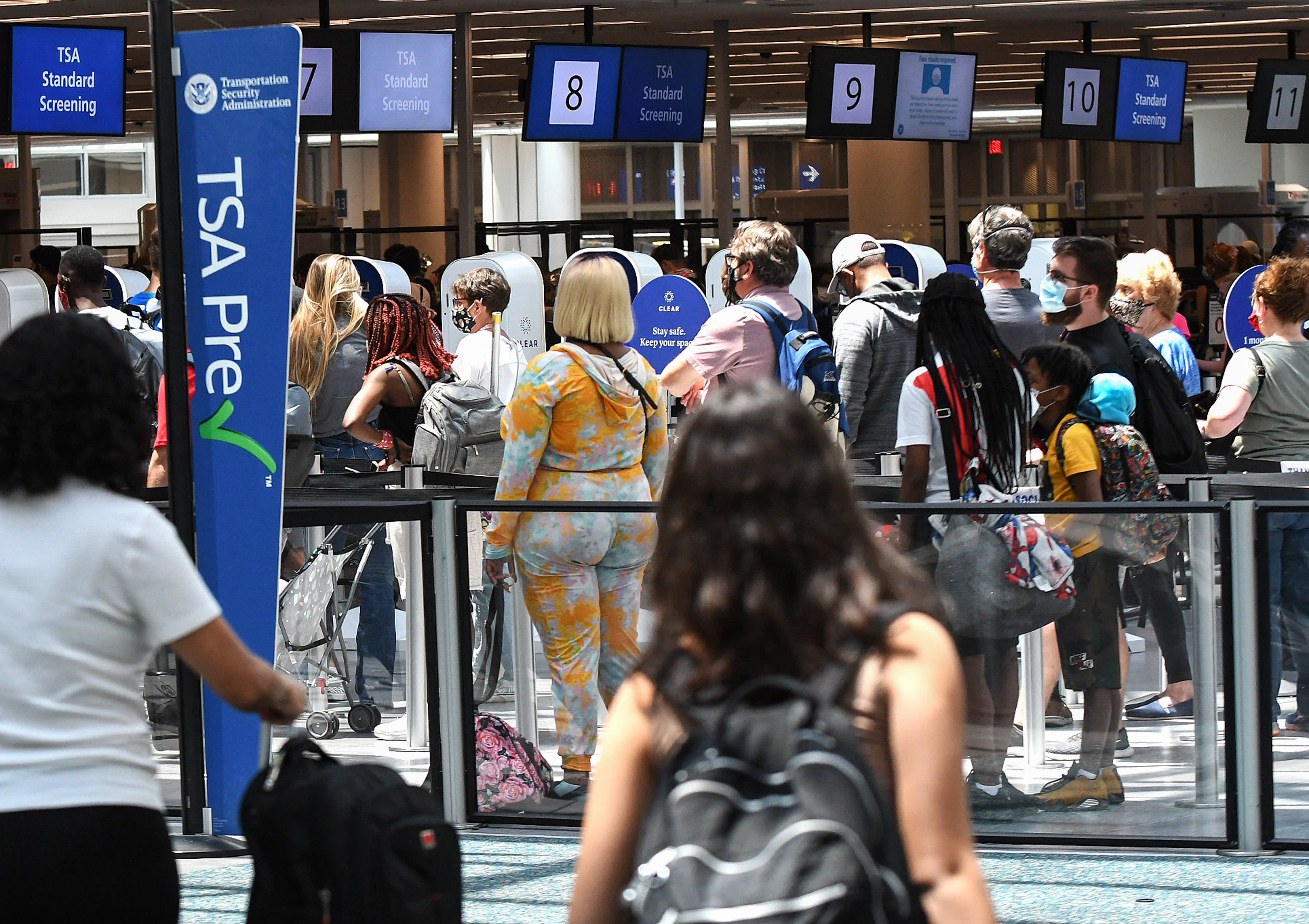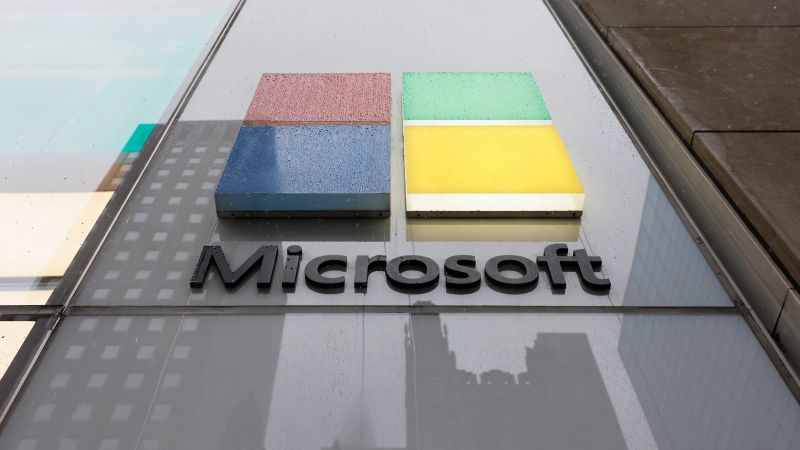In May 2021, passengers queue at an Orlando International Airport Transportation Security Administration (TSA) screening checkpoint. SOPA Images | LightRocket | Getty Images | Paul Hennessy For the first time in the pandemic, airport screenings have surpassed 2019 levels, indicating high travel demand for the Fourth of July weekend, according to the Transportation Security Administration. On Thursday, the TSA checked approximately 2.15 million travelers, roughly 3% more than the 2.01 million who went through security checkpoints at US airports on July 1, 2019. The upward trend is unlikely to continue. Monday, July 1, 2019, was a low point for the week, when screenings increased by more than 706,000 persons, peaking on July 5. Nonetheless, the milestone demonstrates the spike in air travel demand following a broad vaccine deployment in the United States this spring and the lifting of pandemic-related closures or restrictions. The rise is primarily attributable to domestic leisure travel in the United States, with most business and long-haul overseas travel still on hold. Meanwhile, airlines are dealing with a slew of thunderstorms across the United States this week, which have caused delays in the Dallas/Fort Worth area, which is home to Southwest Airlines and American Airlines hubs. According to flight-tracking website FlightAware, Southwest cancelled 194 flights, or 5% of their schedule. According to the site, almost 800 aircraft were delayed, accounting for 23% of the day’s schedule. According to FlightAware data, about 130 American flights were canceled, accounting for about 4% of the total schedule, while about 700 were delayed. Airlines and airports are likewise trying to guarantee that enough staff is available during the high summer season. In exchange for $54 billion in federal payroll assistance, carriers were barred from involuntarily furloughing workers. However, during the epidemic, airlines encouraged employees to take voluntary steps such as buyouts, early retirement, or brief leaves of absence. Several companies are attempting to hire or rehire them, as well as hire temporary or new full-time workers, in order to meet the increased demand. Southwest is giving double pay to flight attendants, as well as ground and cargo operations workers, who work shifts in the first week of July to avoid flight interruptions, according to CNBC. Last month, American Airlines announced that it had cut its schedule for the first half of July by around 1%, owing to a substantial increase in demand and personnel constraints. Flight attendants who do not call out between July 1 and September 6 will receive $800 or four one-way confirmed-space passes for future flights, according to JetBlue Airways. In a memo reviewed by CNBC, JetBlue’s vice president of inflight experience, Ed Baklor, said, “This summer is not going to be easy financially or operationally, and call outs make this time even more hard.” After consumers experienced hours-long hold times, Delta Air Lines is in the midst of employing 1,300 bookings agents by the fall. Pilots, flight attendants, and mechanics will all be hired by the airline. United Airlines, like Delta, was more cautious about adding flights this summer compared to American and Southwest, citing federal assistance and a contract with its pilots’ union that kept many aviators current and available to fly as factors in avoiding some of its competitors’ operational difficulties. Airports are also dealing with a slew of personnel issues, with some concessionaires offering $1,000 signing bonuses to fill unfilled positions such as cashiers, cooks, and other positions./n
Read MoreTSA screenings surpass 2019 levels in pandemic first as airlines, airports scramble to staff
2021-07-02T20:29:14-04:00July 2nd, 2021|



